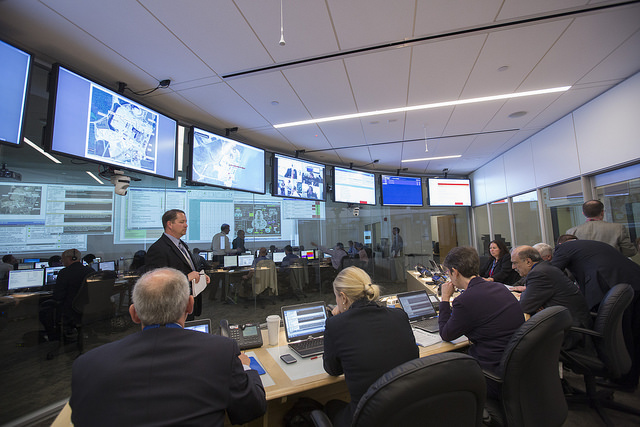GOP senators vow to block U.S. from complying with global climate deal
http://www.eenews.net/stories/1060021496


Friday Nuclear Matinee – Race for Atomic PowerBy Will Davis on Jul 10, 2015 10:51 amThis week’s feature is a half hour documentary on the history of the National Reactor Testing Station, or NRTS (now part of Idaho National Laboratory) which has seen 52 different Continue Reading → Read in browser » |
|
Dear readers,
What's it like to actually go off the grid? New advancements in distributed energy have made it easier than ever for consumers to reduce and hypothetically even eliminate their need for the centralized electric system, sparking concern and debate throughout the industry. But while the policy battles and corporate rivalries in distributed energy get coverage, less attention is paid to how these technologies are impacting everyday people on the ground. Utility Dive's new series, "Diary of a Grid Defector," hopes to change that. Each month, Utility Dive writer Robert Walton will report on his adventures setting up an off-grid cabin and exploring developments in distributed energy in upstate New York. We hope his experiences will give our readers an insightful, first-hand look at what life is like at the edge of the electricity system—and how the revolution in distributed energy technologies is changing it. You can find the first installment in today's edition of Utility Dive. We would love to hear your feedback. Did you find Robert's dispatch interesting? Useful? Or maybe you simply have a tip for his new, off-grid lifestyle. Whatever it may be, send us an email at utility.dive.editors@ As always, thank you for relying on Utility Dive to keep you up to date on the latest developments in the electric power industry. Have a great Friday and a lovely weekend.  Gavin Bade
Gavin BadeEditor, Utility Dive Twitter | E-mail |
Dirty Energy vs. Clean Power
The Past Battles the Future at Seneca Lake
By Ellen Cantarow
Let’s amend the famous line from Joni Mitchell’s “Yellow Taxi” to fit this moment in the Finger Lakes region of New York State. There, Big Energy seems determined to turn paradise, if not into a parking lot, then into a massive storage area for fracked natural gas. But there’s one way in which that song doesn’t quite match reality. Mitchell famously wrote, “Don't it always seem to go that you don't know what you've got till it's gone.” As part of a growing global struggle between Big Energy and a movement focused on creating a fossil-fuel-free future, however, the residents of the Finger Lakes seem to know just what they’ve got and they’re determined not to let it go. As a result, a local struggle against a corporation determined to bring in those fracked fuels catches a changing mood not just in the United States but across the world when it comes to protecting the planet, one place at a time, if necessary.
It’s difficult to imagine a more picturesque landscape, a more tranquil locale, a more bucolic garden spot than the Finger Lakes region. Each year, it draws tens of thousands of tourists to gaze at the waterfalls in Watkins Glen, to kayak and canoe in its deep waters, to dine in its farm-to-table restaurants and enjoy the homespun hospitality of its bed and breakfasts. Lush vineyards rustle on tree-studded hillsides. Wine Enthusiast magazine gave it top honors last year, calling it “one of the most vibrant and promising wine regions of the world.” There are fruit and vegetable farms and sugar maples, too. In 2013, the state’s maple syrup production ranked second only to Vermont’s.
The eleven Finger Lakes are among the wonders of the natural world. At 38 miles in length, Seneca Lake is the second longest of them, its 4.2 trillion gallons of water provide drinking water for 100,000 people. Its shallows are home to warm-water fish like smallmouth bass and yellow perch. Its deep waters play host to lake trout and Atlantic salmon and have created a unique microclimate in the surrounding region, neither too cold in winter nor too warm in summer, allowing agriculture to flourish.
Perhaps inspired by the ecological marvel that is their home, many of the Finger Lakes vineyards and vegetable farms rely on sustainable production methods. At the same time, wineries, hundreds of businesses, and individual families have begun converting from the use of fossil fuels to alternative energies. Tompkins County, adjacent to Seneca Lake, has even developed a solar energy program that has inspired similar efforts in counties across the state. A regional wind farm is scheduled to start operating in 2016. Clean and green seems to be the ethos of the region, but all that could change fast -- and soon.
Click here to read more of this dispatch.http://www.tomdispatch.com/post/176021/tomgram%3A_ellen_cantarow%2C_paradise_lost_--_or_found/#more
I encourage all countries to help strengthen nuclear security by adhering to this important Amendment... Bringing this vital instrument into force is finally within our grasp.“The Amendment to the CPPNM is the most important area of unfinished business in global nuclear security,” Mr Amano said. “Today’s ratification of the Amendment by Italy and Turkey brings this vital tool a step closer to coming into force.”